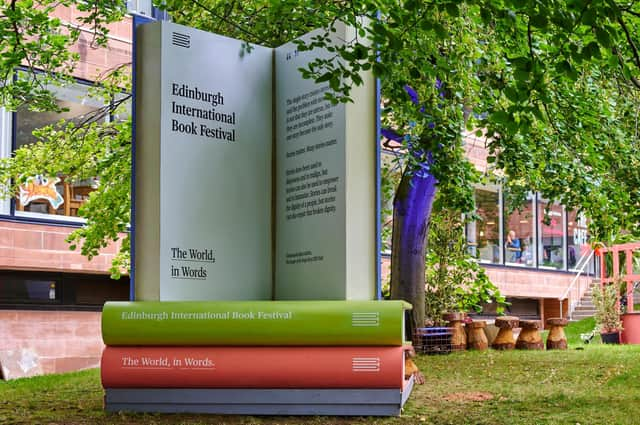Edinburgh Book Festival reviews: Pat Barker | Maggie O'Farrell | Marilynne Robinson


In Pat Barker’s last novel, The Silence of the Girls, there is a scene in which a Trojan princess strokes the back of a fellow captive 12-year-old girl, trying to reassure her that “marriage” – sex slavery, really – to one of the conquering Greeks won’t be all that bad when she knows that the reality will be horrendous.
“Today in Afghanistan, ” Barker said at the Book Festival on Saturday, “there must be mothers who are also stroking the backs of their daughters and saying the same things. It’s still happening.”
Advertisement
Hide AdHer new book, The Women of Troy, is about the aftermath of war: we’ve moved from Homer to Euripides. But at least in Barker’s telling of these stories, the women are centre stage and no longer silenced.
Her next novel, she revealed, will feature Cassandra, whose ability to foretell the future is ruined by Apollo’s curse that she will never be believed. Barker has imagined her as bipolar. There will be a fourth Trojan novel after that, as “I’m so sick of being the woman who writes trilogies”.
There’s a certain amount of feminist rewriting in Maggie O’Farrell’s acclaimed novel Hamnet too. Originally she had thought it would be about ghosts, sons and fathers (in this case, of a certain unnamed Stratford-upon-Avon playwright). Then she was outraged at how easily both Agnes (aka Ann Hathaway) and her son had been written out of history and that changed its direction.
O’Farrell was every bit as engaging and eloquent as one has come to expect, but Nicola Morgan’s questioning about the long-term effects of encephalitis (“the hinge on which my childhood hung”) brought out how hard-won her success has been: the two years off school, and having to learn everything again from how to walk to how to hold a pen were just the start of it. A more rounded portrait of the artist than one often gets from a quick voyage round the latest book, and all the better for it.
Finally, let’s hope that computers lie. Because according to mine, yesterday afternoon’s event with acclaimed American novelist Marilynne Robinson was watched to the end by only 12 people. Well over 100 logged on at the start, but a seven-minute technical delay in streaming might have accounted for the falling off.
If so, they missed an interview masterclass, in which the thoughtfulness and depth of James Runcie’s questions were answered in the wisdom and lucidity of Robinson’s replies.
Advertisement
Hide AdAgain, this wasn’t just a trot around the plot of her new novel, but reached right down to what makes her write in the first place, why she has chosen to write a quartet of novels – soon, she hinted, to be a quintet – about two Iowa clergymen and their occasionally prodigal progeny, and how she tries to keep her characters as elusive as even loved ones can be.
I’d say more about this interview, which also touched on idealism, empathy, history, faith, American politics (yes, even Afghanistan). But do yourself a favour and watch it vial the Book Festival website.
A message from the Editor
Advertisement
Hide AdThank you for reading this article. We're more reliant on your support than ever as the shift in consumer habits brought about by coronavirus impacts our advertisers.
If you haven't already, please consider supporting our trusted, fact-checked journalism by taking out a digital subscription at https://www.scotsman.com/subscriptions